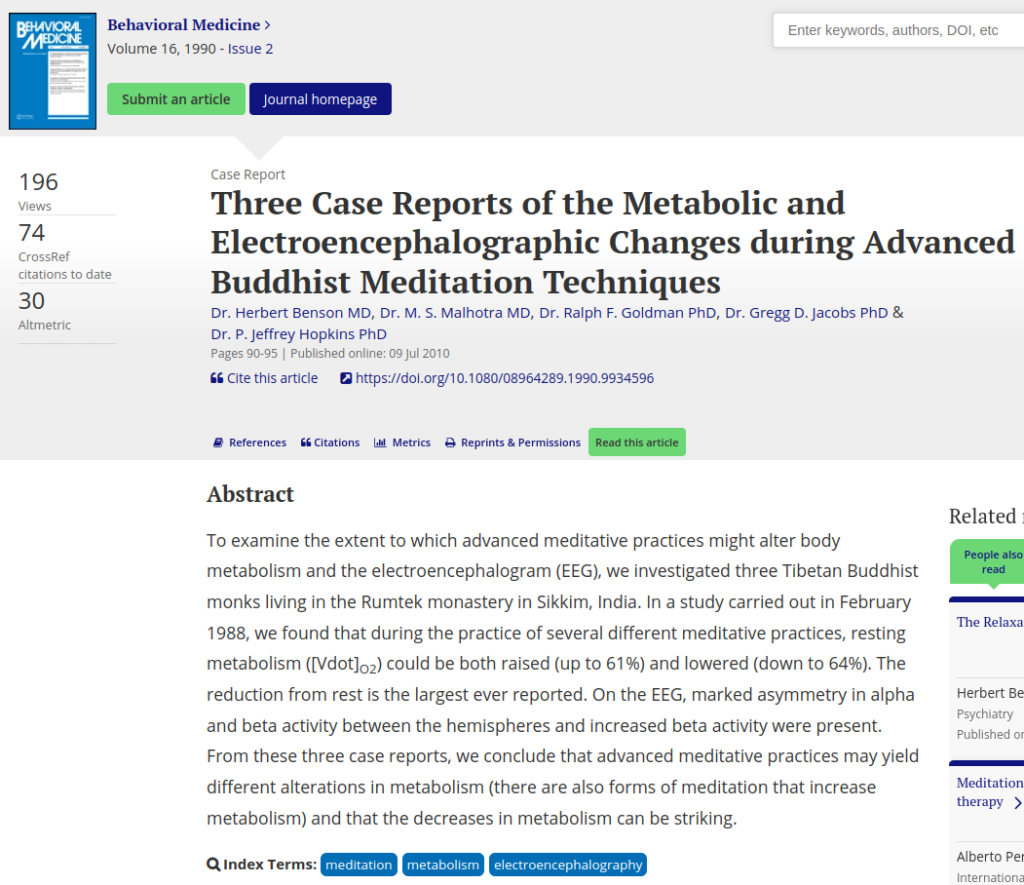To examine the extent to which advanced meditative practices might alter body metabolism and the electroencephalogram (EEG), we investigated three Tibetan Buddhist monks living in the Rumtek monastery in Sikkim, India. In a study carried out in February 1988, we found that during the practice of several different meditative practices, resting metabolism ([Vdot]O2) could be both raised (up to 61%) and lowered (down to 64%). The reduction from rest is the largest ever reported. On the EEG, marked asymmetry in alpha and beta activity between the hemispheres and increased beta activity were present. From these three case reports, we conclude that advanced meditative practices may yield different alterations in metabolism (there are also forms of meditation that increase metabolism) and that the decreases in metabolism can be striking.
Three Case Reports of the Metabolic and Electroencephalographic Changes during Advanced Buddhist Meditation Techniques
Publication
Behavioral Medicine
Volume 16, Issue 2
Abstract
Related Listings
Journal
Journal of Human Stress
Oxygen consumption is usually considered to be predictable and unalterable at a fixed work intensity. The relaxation response is hypothesized to be an integrated hypothalamic response which results in generalized decreased sympathetic nervous system activity. One physiologic manifestation of the relaxation response is decreased oxygen consumption. The possibility that the elicitation of the relaxation response could decrease oxygen consumption at a fixed work intensity was investigate […]
Journal
Behavioral Medicine
To examine the extent to which advanced meditative practices might alter body metabolism and the electroencephalogram (EEG), we investigated three Tibetan Buddhist monks living in the Rumtek monastery in Sikkim, India. In a study carried out in February 1988, we found that during the practice of several different meditative practices, resting metabolism ([Vdot]O2) could be both raised (up to 61%) and lowered (down to 64%). The reduction from rest is the largest ever reported. On the […]
Journal
Behavioral Medicine
This study evaluated the efficacy of the relaxation response on the postoperative recovery of 27 cardiac surgery patients randomly assigned to one of two groups. Thirteen experimental group patients received educational information and practiced eliciting the relaxation response before and after surgery. The 14 patients in the control group received only information. Experimental and control groups were compared before and after surgery on both physiological and psychological recovery […]

